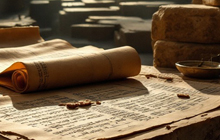
Religion & Popular Culture
Examining the ways religious beliefs and practices are represented in our culture and how that may function to influence opinions, actions, and policy.

Our students learn to discern the role of religion for individuals, cultures, and societies. They study and compare the myths, symbols, and rituals of various religious traditions from an outsiders’ stance, in a context of free inquiry.
Through our religion studies curriculum, students learn to read closely, think critically, discuss insightfully, and write analytically — resulting in a graduate with skills for responsible participation in their diverse local and global communities.
These skills are the heart of a liberal arts education.

Examining the ways religious beliefs and practices are represented in our culture and how that may function to influence opinions, actions, and policy.

Using the comparison of creation stories as an introduction to the study of myth, its relationship to ritual, and its function in religious traditions.

Exploring religious life in Japan through a variety of its appearances, from the earliest historical evidence in the Neolithic Period to the present.

Using “Time” and “Space” as the dual focal points to examine the development of diverse Jewish communities encountered today.

Engaging meaningfully with various cultures’ religious approaches to the environment, including those of a local religious farming community.

Studying ancient materials in their oldest forms and examining how these texts were read, interpreted, and transmitted within Christian communities over time.